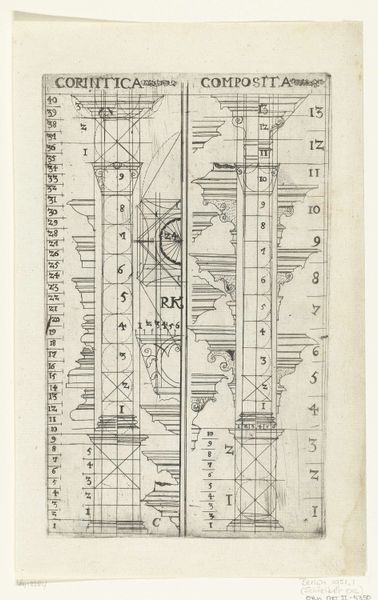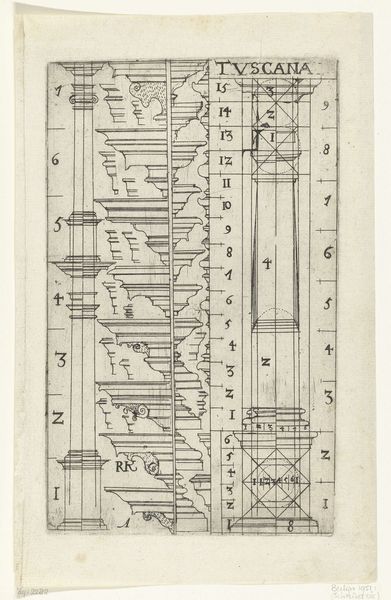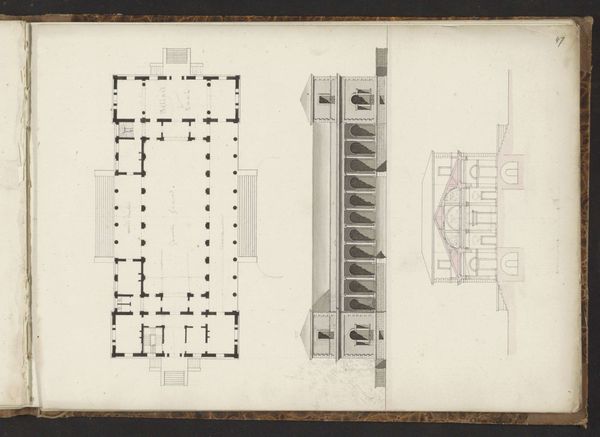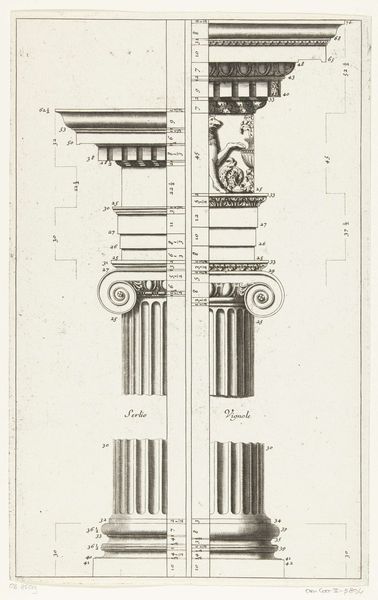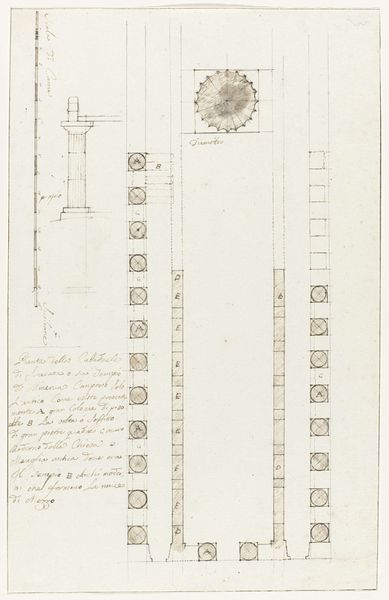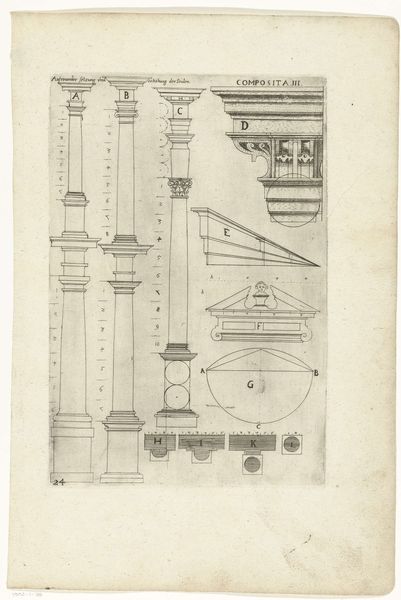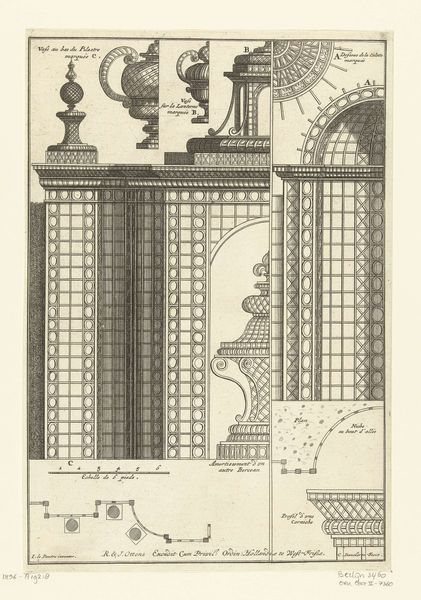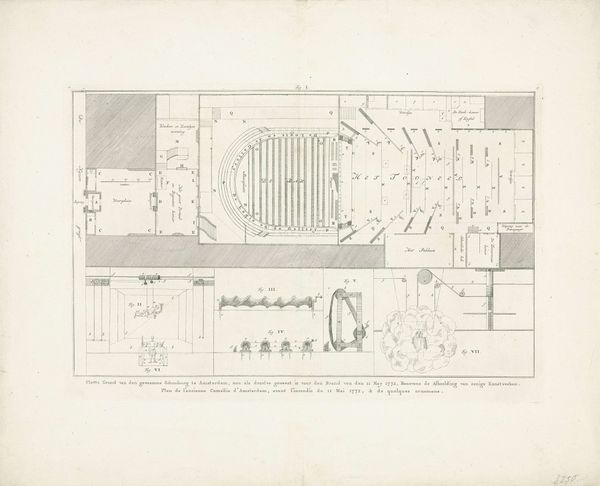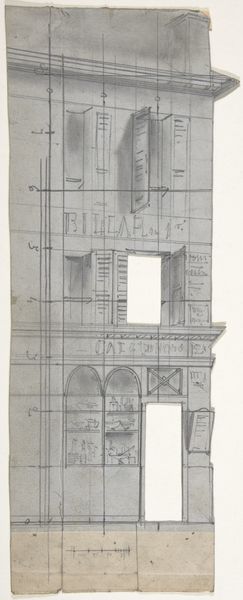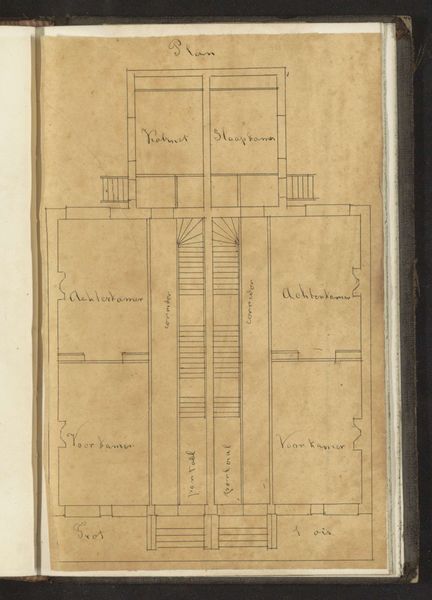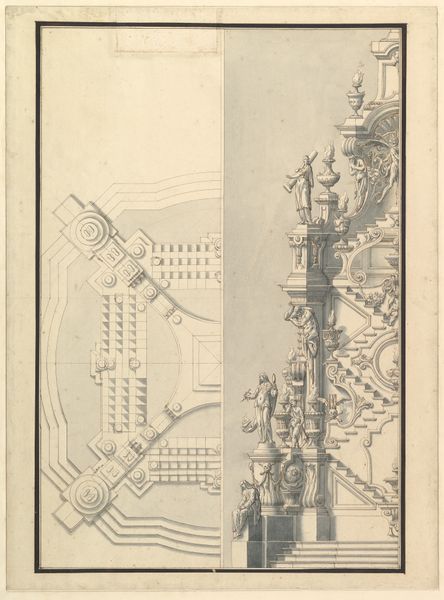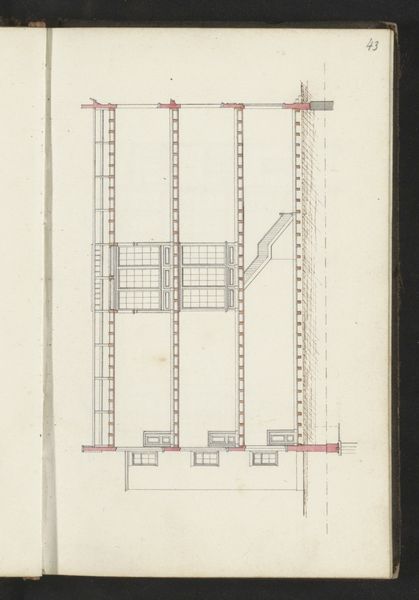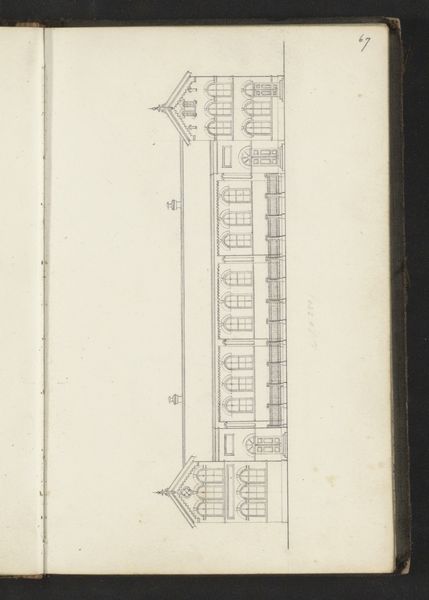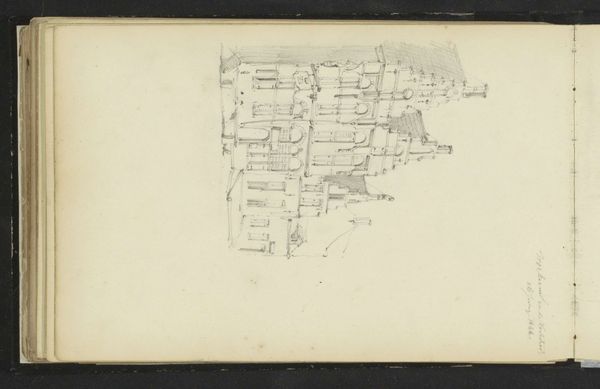
drawing, etching, paper, engraving, architecture
#
drawing
#
etching
#
etching
#
paper
#
11_renaissance
#
geometric
#
classicism
#
history-painting
#
engraving
#
architecture
Dimensions: height 210 mm, width 129 mm
Copyright: Rijks Museum: Open Domain
This undated print depicts the classical Ionic and Doric orders, likely created as a reference for architects or students. The image presents the two column types alongside precise measurements and proportional guidelines, revealing the institutional emphasis on standardization during the Renaissance. Made in Europe, likely Italy or the Netherlands, the print reflects a broader cultural fascination with classical antiquity. The architectural orders, which originated in ancient Greece, were revived during the Renaissance and became associated with ideas of harmony, reason, and order. This print illustrates how classical forms were codified and disseminated through educational institutions. The act of measuring and documenting these architectural elements reflects the period's investment in empirical observation and its belief in the power of knowledge to control and shape the world. To better understand the image, we could look at treatises by Renaissance architects, like Alberti or Palladio, who elaborated on classical principles. We might also investigate the role of academies and workshops in transmitting architectural knowledge during this period.
Comments
No comments
Be the first to comment and join the conversation on the ultimate creative platform.
